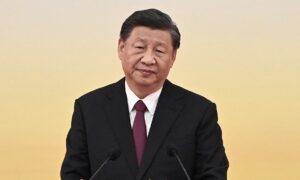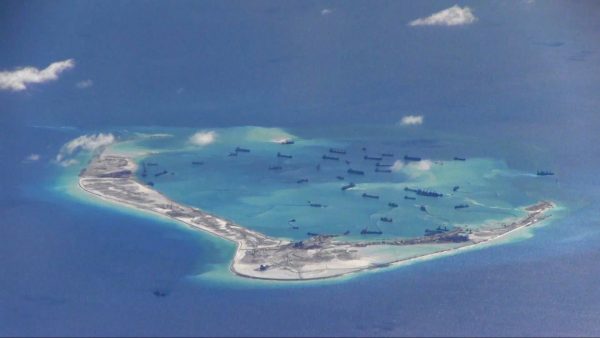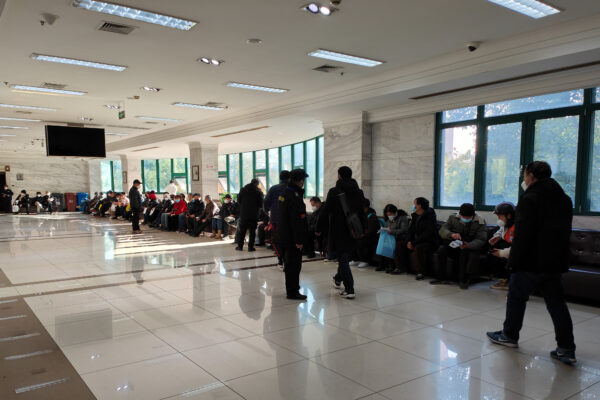A Question of Trust
CommentaryAn essential basis of international relations is that foreign parties can trust what they say to each other. If a world leader directly tells another leader a position or stance that his or her country asserts or adheres to, let alone an alleged fact, the other can believe it. If a nation enters into an international agreement or treaty, then other nations can rely on broad compliance by that nation with the terms of the agreement. Otherwise, international relations are unsustainable. At its basic, international relations, like all interpersonal relations, rely on trust. National governments naturally change their positions or adjust to various influences, internal and external, but they usually endeavour to foreshadow changes, often via their diplomats and through other channels, so as not to cause surprise or unintended consequences. Without mutual trust, an international rules-based order cannot be sustained. A totalitarian state can work within this framework for the pragmatic reason that its own survival is dependent on mutual understandings but the temptation to act unilaterally, to ignore international rules and to believe “might is right” is evident often—observe Russia’s invasion of Ukraine. CCP Lost the World’s Trust The absence of trust is also evident in the world’s reaction to China. That trust has been broken by a series of events including territorial disputes in the China Seas. As a signatory to the United Nations Convention on the Law of the Sea (UNCLOS), China is bound by the agreement and determinations made pursuant to it. When the Chinese Communist Party (CCP) seized Scarborough Shoal in the South China Sea from the Philippines, it ignored Manila’s protests, and objected when the Philippines submitted the dispute to arbitration under UNCLOS. The CCP disputed the authority of the tribunal, failed to contest the complaint, and then completely ignored the Hague Tribunal’s final ruling in a clear breach of its obligations under UNCLOS. Despite the finding that the so-called nine dash line has no basis in international law, and that artificial islands cannot establish territorial claims, the Chinese regime has continued to assert its sovereignty. Worse, Chinese leader Xi Jinping asserted that he would not militarise these artificial structures but proceeded to do just that! Chinese dredgers work on the construction of artificial islands on and around Michief Reef in the Spratly Islands of the South China Sea on May 2, 2015. (U.S. Navy) World confidence was further tested by trade bans imposed by Beijing in contravention of agreements entered into by the CCP. International trust had been shaken by these events, but it was completely eroded by the CCP’s response to the COVID-19 outbreak. Having been the source of the spread of the virus, whether the result of natural, accidental or other factors, the failure to alert the international community raised suspicion. Failing to fully cooperate with an independent, international investigation into the origins and spread of the virus cemented the belief that the CCP could not be trusted on the matter. This attitude was reinforced by the cavalier manner in which Xi recently reversed the COVID-zero policy. Hypocritical Approach to COVID Last year, Xi declared that the response to COVID was ideological. In an article published in April in the “Study Times,” a publication of the Central Party School of the regime, the head of the nation’s National Health Commission, Ma Xiaowei, insisted that China maintain its COVID-zero stance. He added that “we must take a clear stand against the current wrong ideas such as so-called ‘co-existence with the virus.’” Scientists, doctors and other health experts are consulted, but it is Xi Jinping who decides the policy, based on an “ideological understanding” of an “ideological problem.” Speaking at a Politburo Standing Committee meeting last year, Xi declared that he would “unswervingly adhere to the general policy of ‘dynamic zero-COVID,’ and resolutely fight against any words and acts that distort, doubt or deny our country’s epidemic prevention policies.” He added the country’s COVID strategy was determined by the party’s “nature and mission” and the measures “scientific.” He claimed that the party was able to “defend” Wuhan against the COVID battle, and it would do the same in Shanghai. Xi said that the regime would punish anyone who questions his policies. People wait for funeral service for their deceased relatives at Baoxing Funeral Parlor in Shanghai, China, on Jan. 4, 2023. (Wang Gang/VCG via Getty Images) He later told the Party Congress that “in launching an all-out people’s war to stop the spread of the virus, we have protected the people’s health and safety to the greatest extent possible and made tremendously encouraging achievements in both epidemic response and economic and social development.” Yet, within weeks, the COVID-zero policy had been abandoned on “scientific

Commentary
An essential basis of international relations is that foreign parties can trust what they say to each other.
If a world leader directly tells another leader a position or stance that his or her country asserts or adheres to, let alone an alleged fact, the other can believe it.
If a nation enters into an international agreement or treaty, then other nations can rely on broad compliance by that nation with the terms of the agreement. Otherwise, international relations are unsustainable.
At its basic, international relations, like all interpersonal relations, rely on trust.
National governments naturally change their positions or adjust to various influences, internal and external, but they usually endeavour to foreshadow changes, often via their diplomats and through other channels, so as not to cause surprise or unintended consequences. Without mutual trust, an international rules-based order cannot be sustained.
A totalitarian state can work within this framework for the pragmatic reason that its own survival is dependent on mutual understandings but the temptation to act unilaterally, to ignore international rules and to believe “might is right” is evident often—observe Russia’s invasion of Ukraine.
CCP Lost the World’s Trust
The absence of trust is also evident in the world’s reaction to China. That trust has been broken by a series of events including territorial disputes in the China Seas. As a signatory to the United Nations Convention on the Law of the Sea (UNCLOS), China is bound by the agreement and determinations made pursuant to it.
When the Chinese Communist Party (CCP) seized Scarborough Shoal in the South China Sea from the Philippines, it ignored Manila’s protests, and objected when the Philippines submitted the dispute to arbitration under UNCLOS.
The CCP disputed the authority of the tribunal, failed to contest the complaint, and then completely ignored the Hague Tribunal’s final ruling in a clear breach of its obligations under UNCLOS.
Despite the finding that the so-called nine dash line has no basis in international law, and that artificial islands cannot establish territorial claims, the Chinese regime has continued to assert its sovereignty.
Worse, Chinese leader Xi Jinping asserted that he would not militarise these artificial structures but proceeded to do just that!

World confidence was further tested by trade bans imposed by Beijing in contravention of agreements entered into by the CCP.
International trust had been shaken by these events, but it was completely eroded by the CCP’s response to the COVID-19 outbreak. Having been the source of the spread of the virus, whether the result of natural, accidental or other factors, the failure to alert the international community raised suspicion.
Failing to fully cooperate with an independent, international investigation into the origins and spread of the virus cemented the belief that the CCP could not be trusted on the matter. This attitude was reinforced by the cavalier manner in which Xi recently reversed the COVID-zero policy.
Hypocritical Approach to COVID
Last year, Xi declared that the response to COVID was ideological. In an article published in April in the “Study Times,” a publication of the Central Party School of the regime, the head of the nation’s National Health Commission, Ma Xiaowei, insisted that China maintain its COVID-zero stance. He added that “we must take a clear stand against the current wrong ideas such as so-called ‘co-existence with the virus.’”
Scientists, doctors and other health experts are consulted, but it is Xi Jinping who decides the policy, based on an “ideological understanding” of an “ideological problem.”
Speaking at a Politburo Standing Committee meeting last year, Xi declared that he would “unswervingly adhere to the general policy of ‘dynamic zero-COVID,’ and resolutely fight against any words and acts that distort, doubt or deny our country’s epidemic prevention policies.”
He added the country’s COVID strategy was determined by the party’s “nature and mission” and the measures “scientific.” He claimed that the party was able to “defend” Wuhan against the COVID battle, and it would do the same in Shanghai.
Xi said that the regime would punish anyone who questions his policies.

He later told the Party Congress that “in launching an all-out people’s war to stop the spread of the virus, we have protected the people’s health and safety to the greatest extent possible and made tremendously encouraging achievements in both epidemic response and economic and social development.”
Yet, within weeks, the COVID-zero policy had been abandoned on “scientific grounds.”
Canberra asked Beijing to provide more transparent information to the rest of the world on its COVID outbreak, including the real time uploading of their genomic sequencing of COVID cases.
Health Minister Mark Butler said he had requested the Health Department to “reach out to their equivalents in China to stress our view that it would be valuable for information to be shared more comprehensively by China.”
He said the lack of clarity from China was the reason why the government had moved to impose new COVID-19 requirements on passengers travelling on flights from China to Australia.
While there were widespread reports from China of thousands of people dying from COVID, hospitals overflowing and bodies piling up, the official data reported just 12 deaths in December. In early January, the country reported around 9,300 new cases daily and one death.
Contrast this to an analysis by the independent health analytics firm Affinity which estimated the number of daily new cases in late December at one million, and the number of daily deaths at 5,000. Further, Affinity predicted up to four million new cases daily by March.
These contradictions only serve to further deepen the lack of trust governments will have in Beijing.
Views expressed in this article are the opinions of the author and do not necessarily reflect the views of The Epoch Times.












